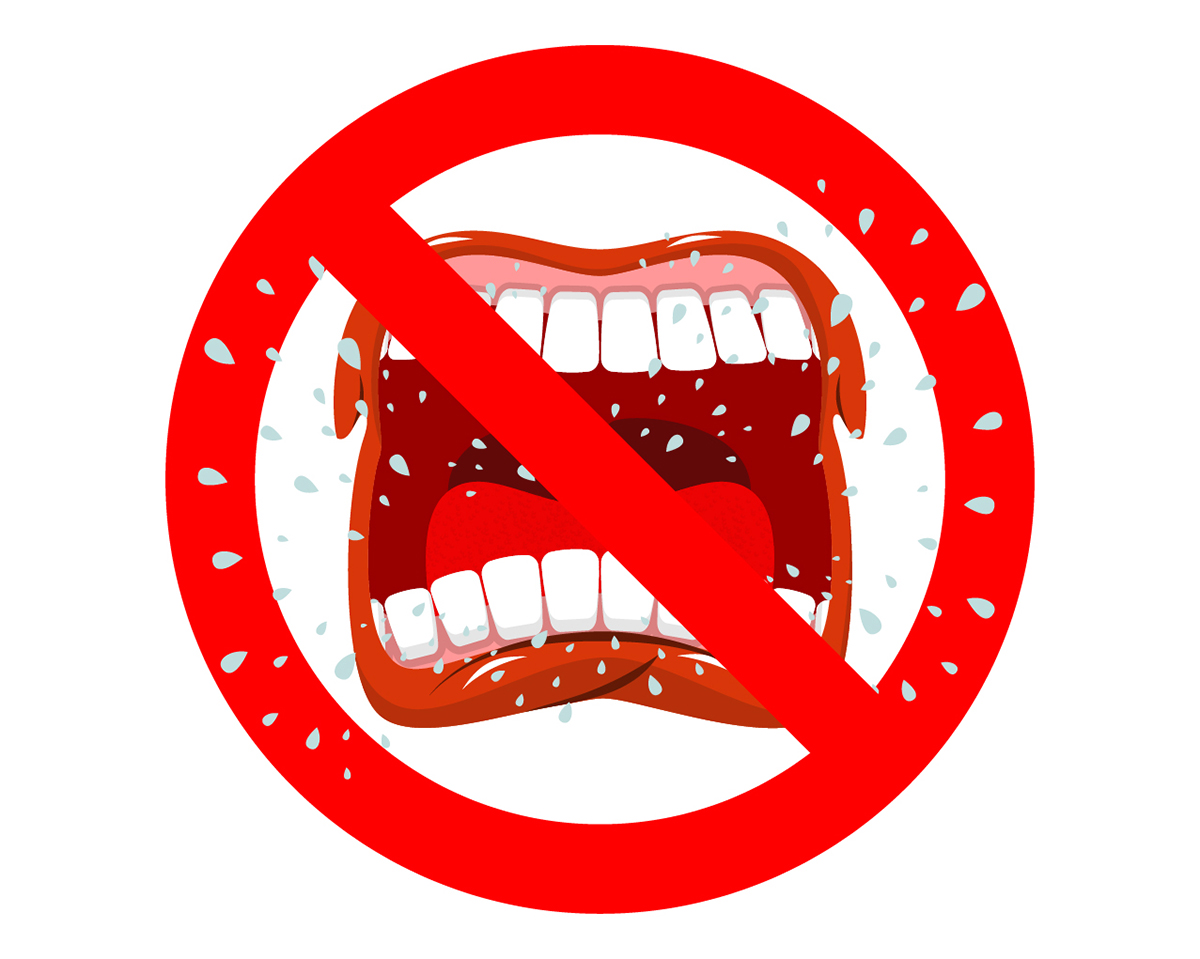by David Dann
Synopsis: Profanity in speech and lifestyle is a form of evil that is closely connected to irreverence and lack of interest in the things of God. Do you value things of value, and is this underlying sense of respect communicated in your speech?
Followers of Christ are commanded to "seek those things which are above, where Christ is, sitting at the right hand of God" (Col. 3:1, NKJV). They are expected to live in such a way so that the primary focus is upon serving and pleasing the Lord (Matt. 6:33). Those who fail in this regard often do so as a result of having succumbed to profanity.
The word "profane" in English versions of the New Testament is a translation of the Greek word bebelos, which means: "permitted to be trodden, accessible" (Vine, 490). It refers to that which is "trodden under foot, unhallowed" (Robertson, 438). That "profane" carries the same connotation in English is evident in that Webster defines it as "showing contempt of sacred things, irreverent."
This concept is often employed regarding the irreverent attitudes, words, and actions displayed by Israel. For example, the Israelites profaned the name of God (Lev. 18:21; Jer. 34:16), the Sabbath (Ezek. 20:16), and the holy things of the sanctuary (Ezek. 22:26). Profanity was displayed when God's people turned their backs on Him, disrespected His laws, and treated that which was holy as though it were common.
The word occurs in the following five passages in the New Testament:
Knowing this: that the law is not made for a righteous person, but for the lawless and insubordinate, for the ungodly and for sinners, for the unholy and profane, for murderers of fathers and murderers of mothers, for manslayers. . . (1 Tim. 1:9).
But reject profane and old wives' fables, and exercise yourself toward godliness (1 Tim. 4:7).
O Timothy! Guard what was committed to your trust, avoiding the profane and idle babblings and contradictions of what is falsely called knowledge (1 Tim. 6:20).
But shun profane and idle babblings, for they will increase to more ungodliness (2 Tim. 2:16).
Lest there be any fornicator or profane person like Esau, who for one morsel of food sold his birthright (Heb. 12:16).
Significantly, the writer of Hebrews employs Esau as an illustration of the profane mindset. Esau treated something sacred (his birthright) with contempt and irreverence by selling it to fulfill a common desire—hunger. New Testament usage of the word indicates that profanity is closely connected with that which is unholy and those who are uninterested in holy things.
While profanity is not often considered in connection with religion, the Israelites were rebuked for committing profanity within the context of practicing religion (Ezek. 22:26). Please consider the following ways in which those who profess to be Christians display profanity in religion:
The church is the temple of God and must not be defiled in any way (1 Cor. 3:16-17). However, the church is profaned when sin and immorality are tolerated among its members. Profanity among the denominations has come to be expected in many cases where those engaged in immoral behavior, such as homosexuality and adultery, are welcomed into fellowship despite the clear teaching of Scripture (cf. 1 Cor. 6:9-11; 5:11-13). However, let us not think that this sort of profanity is limited to the denominational realm. Where adulterous marriages, social drinking, immodest and lascivious dress, and other sins are tolerated, the local church has been profaned.
The mission and purpose of the church are suited to meet the spiritual needs of man, rather than his worldly and physical desires (1 Tim. 3:15). When the church becomes involved in serving social and recreational desires, it has been profaned (cf. 1 Cor. 11:20-22, 34). Additionally, the way of God is profaned by those who seek to change the spiritual mission of the church into a mission focused on feeding and clothing the world and righting the social ills of the day. The church is profaned when it is turned into a secular institution.
God has provided a perfect guide in religion in the Scriptures (2 Tim. 3:16-17). Where God's word is trampled on in favor of human wisdom, there is profanity in religion. This profanity is seen in the use of mechanical instruments of music in worship (Eph. 5:19), the use of women in leadership positions over men (1 Tim. 2:11-12), and in any other substitution or innovation that is enacted without regard for the word of God. When the New Testament pattern for the work, worship, and organization of the church is cast aside, profanity is in full bloom (2 Tim. 1:13).
We probably most often think of profanity outside the context of religion and in connection with a person's speech and conduct. The Christian must be on guard against the profanity that is prevalent in our world.
The Bible associates profanity with anything that is against sound doctrine (1 Tim. 1:9). Who can deny the reality of a constant stream of unholy, immoral, and irreverent behavior depicted in movies, on television, in music, and on the internet? The faithful Christian should be offended and turn away from the profanity that has engulfed our media and our culture (Rom. 12:1-2). However, do we indeed turn away from it? With what are we filling our minds? The one who says that the foul language he hears in his choice of music and movies will not affect him has already been affected more than he thinks!
The profane person thinks nothing of making irreverent references to God and Christ in his everyday conversation. Yet, the profanity doesn't end there. Dirty jokes are also popular. You may not be the one telling them, but too many find enjoyment in listening to them. Others cannot seem to complete a sentence without including some curse or oath. Some feel justified because they only use foul words when they are really upset or angry. For the Christian, there is no justification for profanity in speech. Paul warned his fellow Christians, saying, "But now you yourselves are to put off all these: anger, wrath, malice, blasphemy, filthy language out of your mouth" (Col. 3:8) and, "Let no corrupt word proceed out of your mouth, but what is good for necessary edification, that it may impart grace to the hearers" (Eph. 4:29). Many have sought to soften the offensive nature of their speech by using "euphemisms" such as "golly," "gee," "gosh," "darn," and "heck" or abbreviations like "OMG," in place of the actual words. While this may seem less offensive, it is no less profane. It is especially disheartening to hear or see Christians using these kinds of terms and abbreviations in their speech, on social media, and in text messages. Profane speech reveals a profane heart (Matt. 12:34). Guard your tongue. Before you utter something profane, stop and think: "For by your words you will be justified, and by your words you will be condemned" (Matt. 12:37).
Profanity is undoubtedly seen in the lives of those who are too busy seeking after pleasure to acknowledge their Creator. They are too self-absorbed to have any reverence or regard for the God who made them. The Bible says that such people "are without excuse" (Rom. 1:20-21). Yet, the profane lifestyle isn't limited to those who openly reject God. Many Christians live profane lives simply by placing worldly matters ahead of serving the Lord. Profanity is prevalent when parents make time for their children to be involved in little league and scouts but cannot find time to bring them to Bible study, gospel meetings, or teach them God's word at home. Profane parents may help their children become star athletes and honor students but do very little to "bring them up in the training and admonition of the Lord" (Eph. 6:4). As a result, they raise profane children who grow up to be profane adults. They may assemble with the church as long as their parents make them, but as soon as they are old enough to make their own decisions, they will be off pursuing the worldly goals that their profane parents taught them to place ahead of spiritual things. Don't be surprised if this scenario sounds familiar. Profanity is popular.
To "abstain from every form of evil" (1 Thess. 5:22), the child of God must reject every form of profanity. Stand guard against this subtle tool of Satan that is all too common both in the world and even among Christians. Devote yourself to the Lord, and heaven will be yours.
Robertson, A.T. Word Pictures in the New Testament: Vol. 5. Nashville, TN: Broadman Publishers, 1960.
Vine, W.E. Vine's Complete Expository Dictionary of Old and New Testament Words. Nashville, TN: Thomas Nelson Publishers, 1984.
Webster's English Dictionary. New Lanark, Scotland: David Dale House, 2001.


